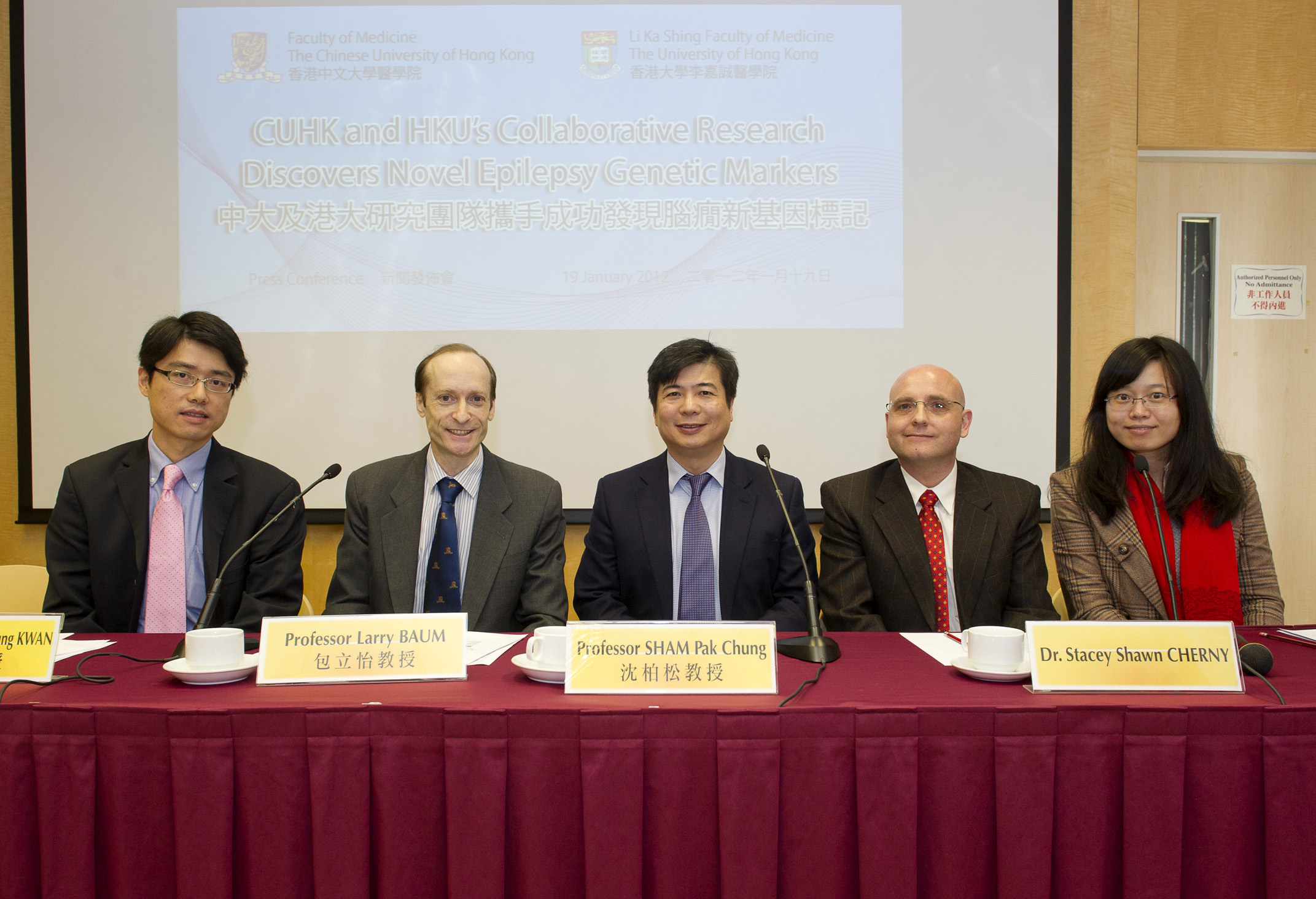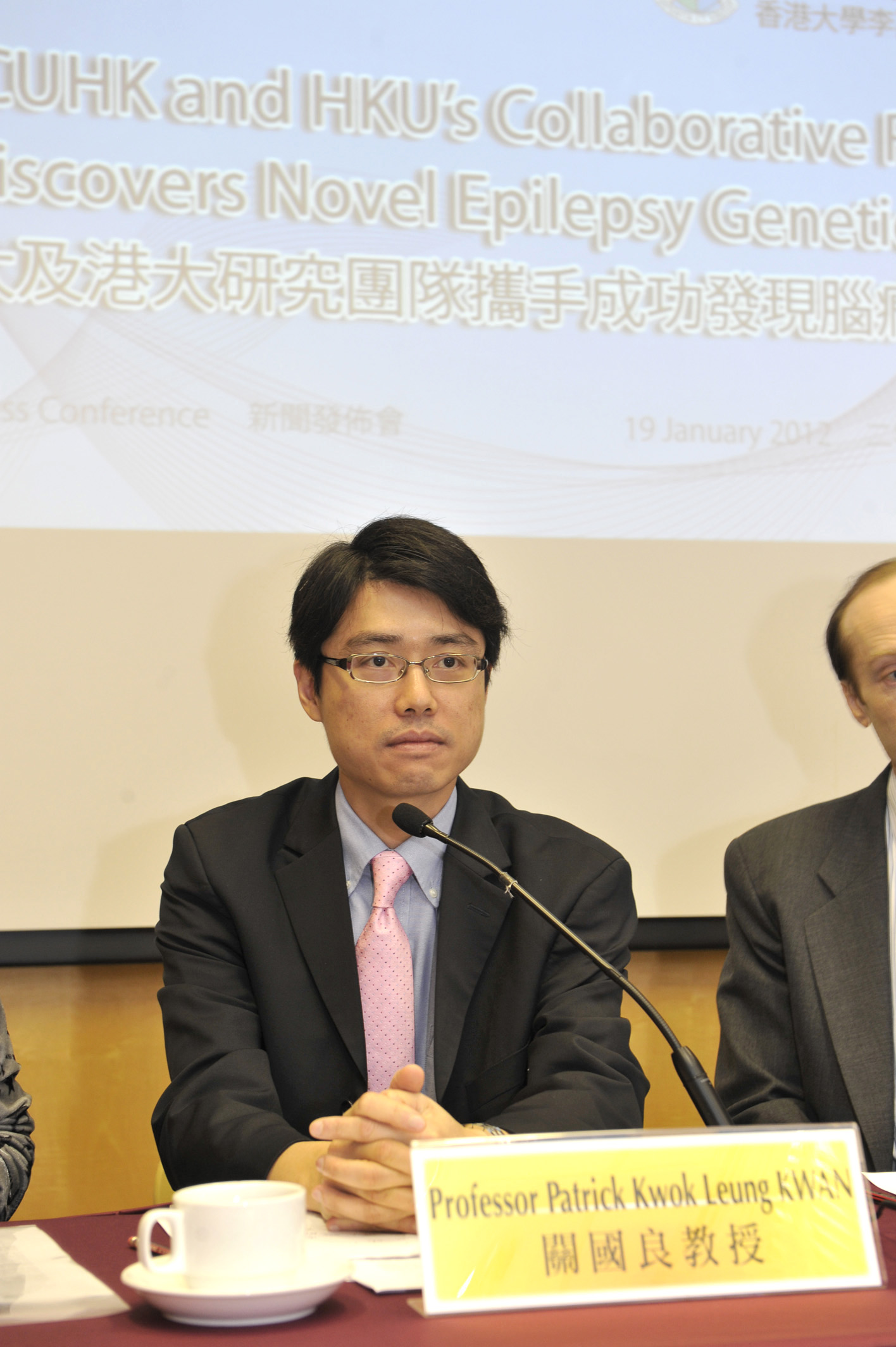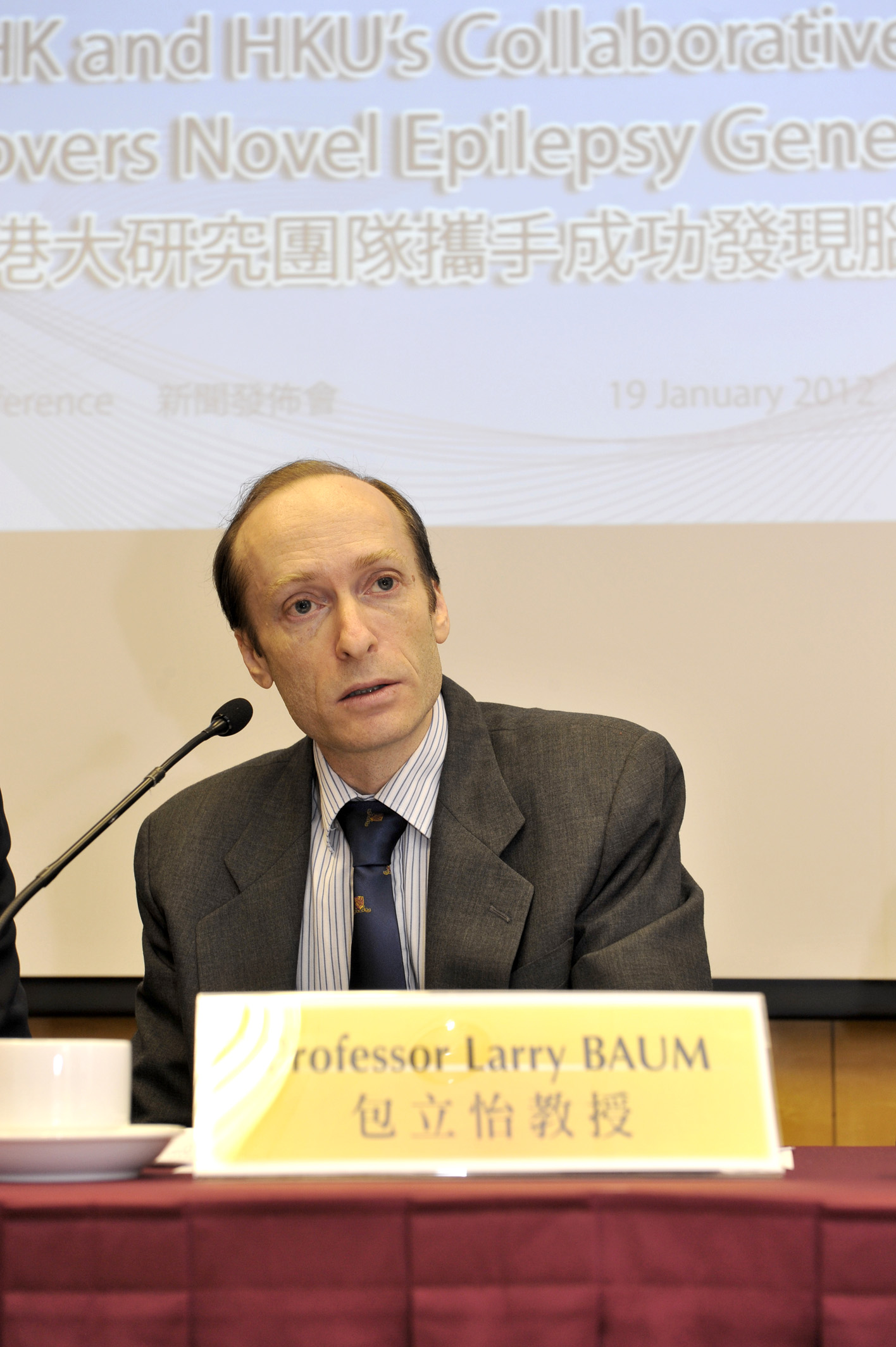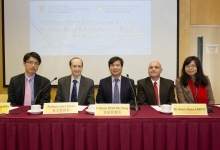CUHK
News Centre
CUHK and HKU’s Collaborative Research Discovers Novel Epilepsy Genetic Markers
Epilepsy is one of the most common serious chronic neurological disorders. On average, 1 in 100 people suffers from epilepsy worldwide. Epilepsy affects people of all ages (most common in children and elderly) and has no geographical or ethnic boundaries. Patients will have seizures resulting from intermittent abnormal excessive electrical discharge of nerve cells in the brain. Patients require long-term treatment, but one-third of them continue to have seizures, severely affecting their education, employment, social function or even self-care. Seizures can cause physical injuries, brain damage, and even death. Epilepsy costs Hong Kong hundreds of millions in treatment and loss of productivity every year, posing heavy burden on individuals and society.
The major cause of epilepsy is brain’s response to damage, such as stroke, tumor, trauma or infection. 5% to 30% of people may develop epilepsy after a brain insult, even after many years. There is no known method to prevent epilepsy; and little is known about the pathways leading from brain insults to epilepsy. However, the fact that the same brain insult leads to epilepsy in some people but not others suggests that inborn genetic differences among people may affect their susceptibility to epilepsy.
Since 2004, the Faculty of Medicine at The Chinese University of Hong Kong (CUHK) has been conducting research on the genetics of epilepsy. Working with paediatric and adult neurologists in major hospitals in five Hospital Authority clusters, over 1,800 epilepsy patients have taken part so far, creating one of the largest collections of epilepsy samples in the world.
Recently, the Faculty of Medicine at CUHK and The University of Hong Kong Li Ka Shing Faculty of Medicine (HKU) jointly investigated 1,087 of these patients (48% male, average age 39 years; range 2 to 91), comparing with 3,444 people without epilepsy. Using advanced technology that scanned nearly half a million sites of variation in the human genome, they found significant differences in the frequencies of certain variants between patients and people without epilepsy. The strongest difference was found in a gene called CAMSAP1L1 which may affect how nerve cells in the brain grow to form connections and networks with each other. Based on the findings, 65% of Hong Kong Chinese carry the high-risk form of this genetic variant, which increases the chance of developing epilepsy by approximately 60%.
This is the first study in the world that successfully found genetic markers for epilepsy using this advanced technology, and is also the first such study to include Chinese epilepsy patients. The study findings have been reported in the authoritative international journal in genetics, Human Molecular Genetics, in November 2011. With further research, this novel discovery may have important clinical implications in the future:
- Patients who suffer brain insults may be screened for these genetic markers so that those at high risk may be observed more closely and receive treatment promptly if they develop epilepsy.
- People with these genetic markers may receive interventions to prevent the development of epilepsy after brain insults.
- Identifying how the variations affect gene function may help scientists to understand how brain insults result in epilepsy, which may lead to new therapies for those who have already developed the condition.
(from left) Dr. Patrick KWAN, Honorary Clinical Associate Professor, Department of Medicine and Therapeutics, CUHK; Prof. Larry BAUM, Associate Professor, School of Pharmacy, CUHK; Prof. SHAM Pak Chung, Head of Department of Psychiatry, Li Ka Shing Faculty of Medicine, HKU; Dr. Stacey CHERNY, Assistant Professor, Department of Psychiatry, Li Ka Shing Faculty of Medicine, HKU; and Ms. GUO Youling, PhD Student, Department of Psychiatry, Li Ka Shing Faculty of Medicine, HKU.
Dr. Patrick KWAN, Honorary Clinical Associate Professor, Department of Medicine and Therapeutics, CUHK presented results of the collaborative genome-wide association study with The University of Hong Kong to investigate the genetic markers susceptible to epilepsy between patients and people without epilepsy, which is the first study worldwide that successfully found genetic markers for epilepsy using the advanced technology.
Prof. SHAM Pak Chung, Head of Department of Psychiatry, Li Ka Shing Faculty of Medicine, HKU briefed how the researchers found significant different in the frequencies of certain variants between patients and people without epilepsy and found a gene called CAMSAP1L1 which may affect how nerve cells in the brain grow to form connection and networks with each other.









